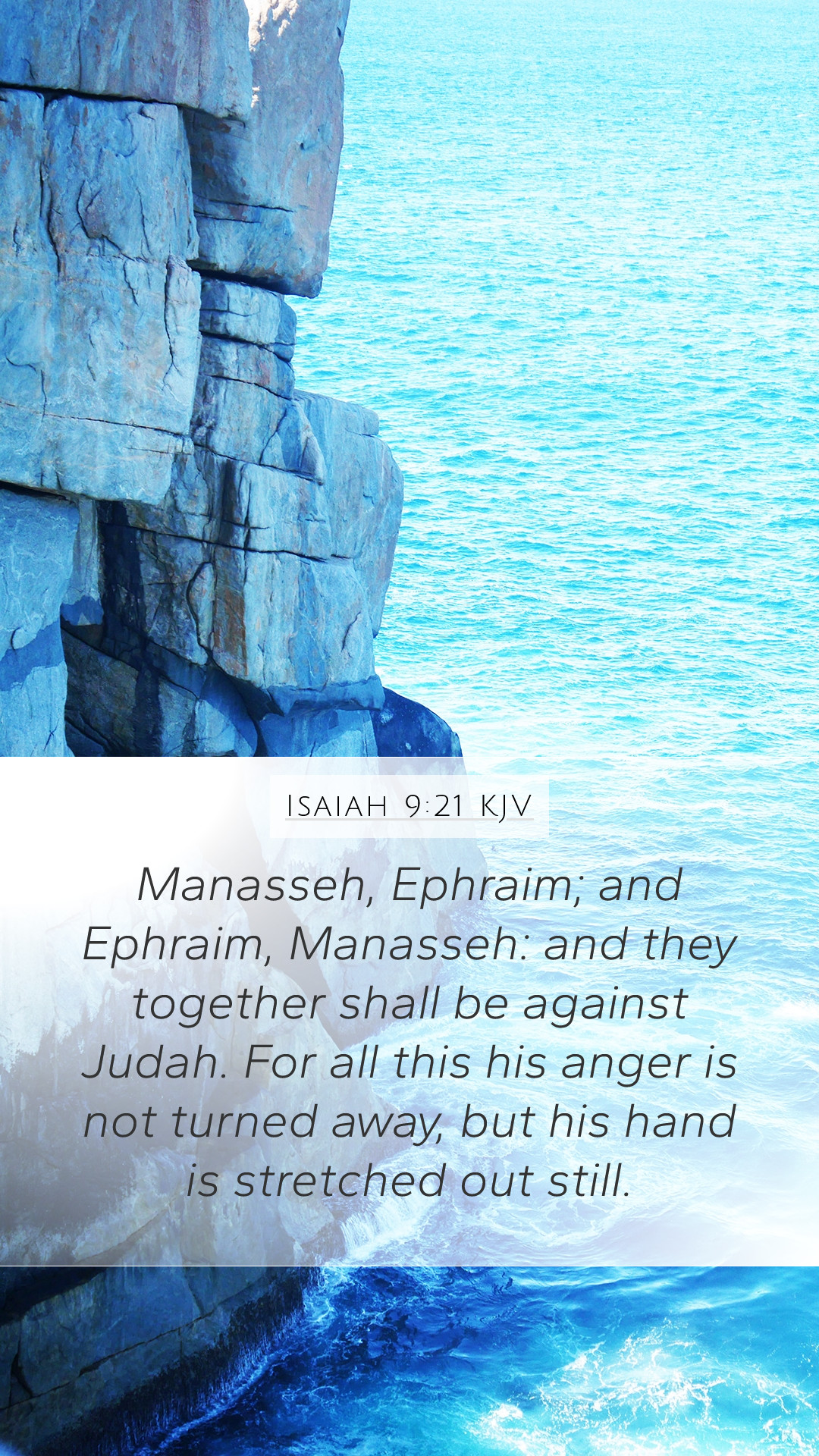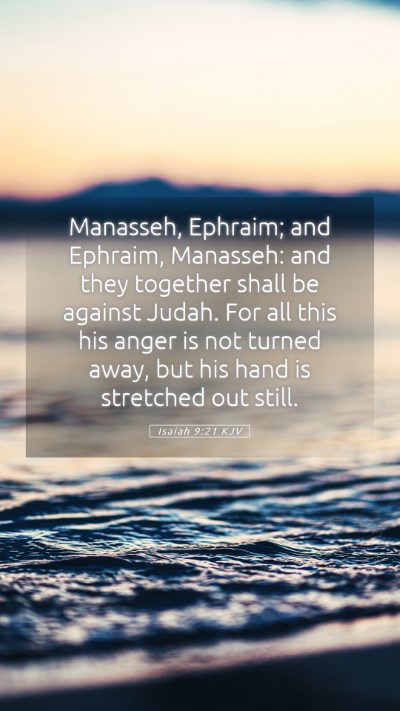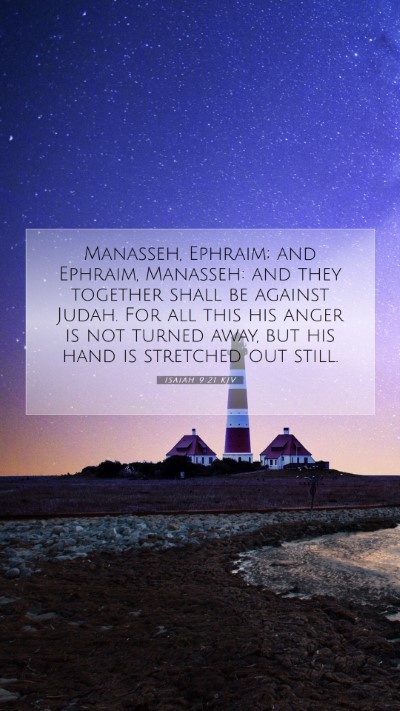Understanding Isaiah 9:21
In this exploration of Isaiah 9:21, we delve into the meanings, interpretations, and insights offered by venerable public domain commentaries. As we uncover the depth of this Bible verse, we aim to provide valuable Bible verse explanations and scripture analysis that promotes better understanding and application in daily life.
Verse Text
"Manasseh, Ephraim; and Ephraim, Manasseh: and they together shall be against Judah. For all this his anger is not turned away, but his hand is stretched out still." (Isaiah 9:21)
Meaning and Commentary
Isaiah 9:21 brings forth a significant message regarding the conflict among the tribes of Israel during a turbulent time. Below are insights from prominent commentators:
-
Matthew Henry highlights the internal strife within Israel, where Manasseh and Ephraim, two dominant tribes, are set against Judah, illustrating the divisions that lead to national calamity. His analysis emphasizes God's displeasure, indicating that despite this turmoil, His "anger is not turned away," suggesting ongoing judgment and the need for repentance from the people.
-
Albert Barnes discusses the significance of these tribes and how their conflicts symbolize larger spiritual truths. He perceives that the historical context reflects their transgressions against God’s covenant and portrays how divine anger persists. Barnes asserts that the key takeaway is the unmeasured grace of God, represented by His "stretched out hand," beckoning the tribes towards reconciliation and repentance.
-
Adam Clarke provides a nuanced view on the implications of Manasseh and Ephraim’s conflict with Judah. He illustrates the challenges faced in terms of political power struggles, shedding light on the fractured relationships amongst the tribes. Clarke also underlines a prophetic element indicating that strife among the people serves as a precursor to the need for divine intervention and restoration.
Key Themes
This verse encapsulates several pivotal themes:
- Division and Conflict: Illustrates the destructive nature of infighting among God’s chosen people.
- Divine Judgment: Signifies God's ongoing displeasure but also hints at His desire for reconciliation.
- Call to Repentance: God's outstretched hand serves as an invitation for the Israelites to return to Him.
Cross References
In understanding Isaiah 9:21, it is beneficial to consider additional scripture that aligns with its themes:
- Isaiah 1:18 - God's invitation to reason together despite sins.
- Jeremiah 5:3 - Mention of persistent rebellion despite God's warnings.
- Hosea 7:8-9 - Describes Israel's inability to return to God amidst turmoil.
Conclusion
In conclusion, the meaning of Isaiah 9:21 is multi-faceted, intertwining themes of conflict, divine anger, and the opportunity for reconciliation. Through Bible study insights and commentary on this verse, one can grasp how historical context enriches our understanding and application of Scripture to contemporary life. This verse encourages individuals and Bible study groups to reflect deeply on their spiritual state and the importance of unity in faith.
Further Study
For a thorough Bible study lesson that embraces the richness of God’s word regarding Isaiah 9:21, consider exploring:
- Bible study guides that focus on the prophetic books.
- Online Bible study courses that cover themes of sin and restoration.
- Bible study tools for deeper in-depth analysis of Old Testament prophecies.


